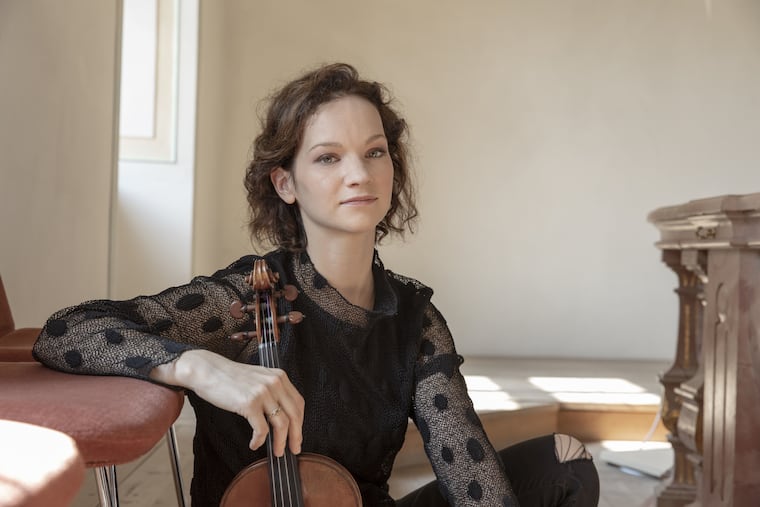Philly’s own Hilary Hahn just won one of the biggest prizes in classical music
Not yet officially announced: the newly-minted Avery Fisher Prize winner will perform in her hometown Philadelphia next season.

A violinist whom Philadelphians watched grow up on the stage is the winner of one of classical music’s biggest prizes.
Curtis-trained Hilary Hahn was awarded the 2024 Avery Fisher Prize on Thursday at a New York Philharmonic concert for which she was soloist.
Hahn, who started at the Curtis Institute at age 10 and graduated almost a decade later in 1999, said it was both “shocking and fantastic” to win the prize, whose previous recipients include Yo-Yo Ma, André Watts, and Midori.
“Back in the ‘90s, I was a teenager and I knew about the prize, and I’ve had colleagues who have won, so I was aware of it all along and thought it was a great thing that it existed,” Hahn told The Inquirer. “And I thought it wasn’t in the cards for me because there are so many great musicians and just one prize.”
» READ MORE: Philly Orchestra features Hilary Hahn and a lavish 'Firebird'
The Avery Fisher is one of classical music’s oldest honors — 50 years old — and is among the most generous, with a $100,000 award.
Hahn says she hasn’t thought much about how she might use the prize money but will “probably pay some of it forward.”
The violinist is based in Boston but performs regularly in Philadelphia, including a not-yet-announced all-Bach solo recital slated for May 17, 2025, at the Kimmel Center.
“It’s a great hall,” she says of Verizon. “I love the sound of it, the feel of it. It’s like being inside of an instrument.”
The last recipient of the Avery Fisher Prize, in 2020, was another Curtis-trained musician: clarinetist Anthony McGill.
Hahn said winning a prize like this is a shot of affirmation.
“You get to step back a little, and it’s a nudge, like, ‘keep doing whatever you’re doing. It matters to people.’”